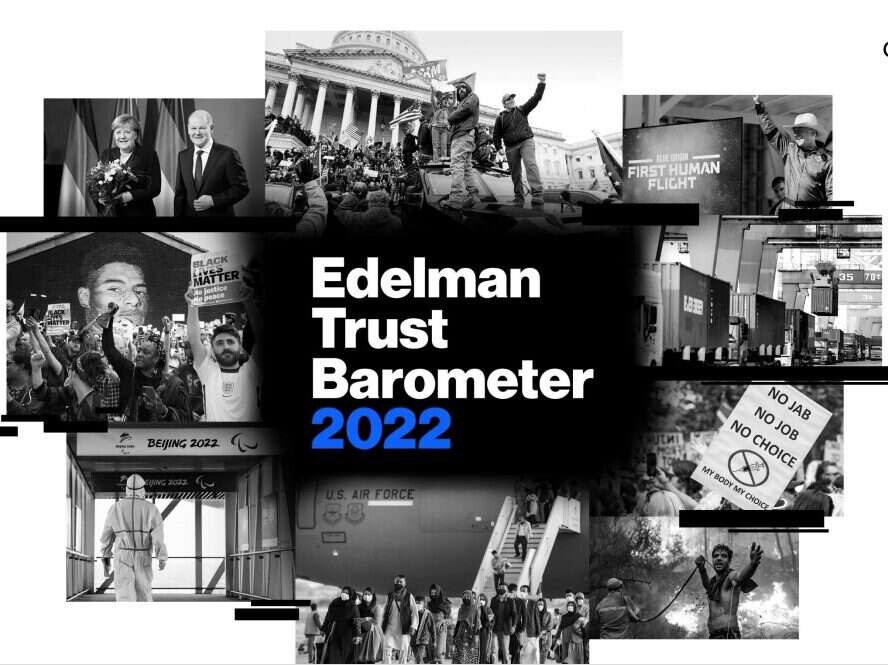
A majority of people around the world are concerned that they are being lied to by journalists, according to the latest trust survey from PR firm Edelman.
Two-thirds (67%) of people globally said that they believe that journalists and reporters purposely try to mislead people by saying things they know are false or grossly exaggerated – an increase of eight percentage points on the company’s last report published in 2021.
Edelman’s Annual Trust Barometer for 2022 also found that trust in media had fallen across the world with concern over fake news at an all-time high.
Faith in the media fell in 15 countries with the US among those reporting the biggest drops. Just 39% of people in the US said that they trust the media – down six points compared to the last survey undertaken in 2021.
Fewer Brits (35%) also said they trusted the media, a fall of two points. The UK and the US are among 14 countries where Edelman says that the media is generally distrusted. In contrast, in some authoritarian states such as China and Saudi Arabia more respondents said that they trust the media.
Across the world just one in two people currently trust the media, the survey found after reviewing feedback from more than 36,000 people in 28 markets globally.
Fifty-six percent of people said that the media was a divisive force in society. Just one-third (35%) said the media contributed to making societies more cohesive.
Press Gazette's own media freedom health check in 2021 revealed that 70% of the world's population live in places with little media freedom, which has likely contributed to distrust in the press.
The report also found that concern over fake news, a phrase probably most associated with former US president Donald Trump, was higher than ever. Over three quarters (76%) of people said they were concerned that false information and fake news could be used as a weapon.
Concern over fake news ranged from 84% of people in Spain to 63% in the Netherlands. In the UK two thirds (65%) of people worry about misinformation and disinformation. Respondents in only two countries said they were less concerned about fake news this year.
When it comes to types of media sources, just 37% of people said that they trusted social media - a fall of eight percentage points.
However traditional media also saw a significant erosion of trust with less than six in ten (57%) people saying they trusted mainstream sources, a fall of five percentage points from last year.
Russia (39%), Japan (39%) and the US (43%) are among the countries where traditional media is least trusted.
Search engines meanwhile scored 59%, down three points.
The only type of media to see a small uptick in trust was "owned media" - i.e. businesses’ own communications channels. But with a trust score of 43% it was still far behind traditional media.
While Edelman found that trust had declined across institutions as a whole, overall there was less faith in government and media, while more people had confidence in businesses and NGOs.
The report authors said that the survey revealed, "a vicious cycle of distrust fuelled by government and media".
"This vicious cycle of distrust threatens societal stability," they said. "It’s a death grip where media is chasing clicks and government is chasing votes, both feeding a cycle of disinformation and division and exploiting it for commercial and political gain."
Email pged@pressgazette.co.uk to point out mistakes, provide story tips or send in a letter for publication on our "Letters Page" blog
